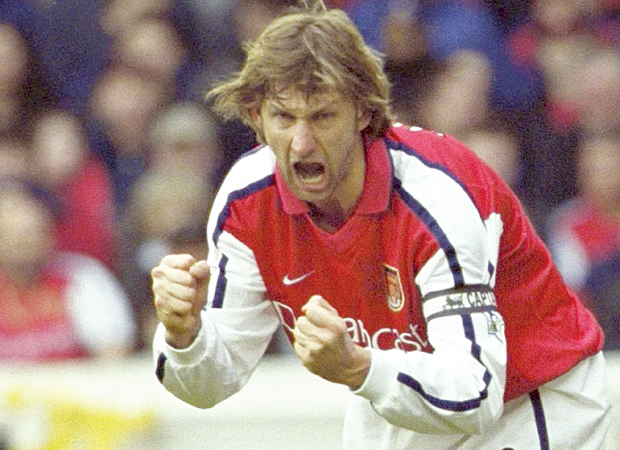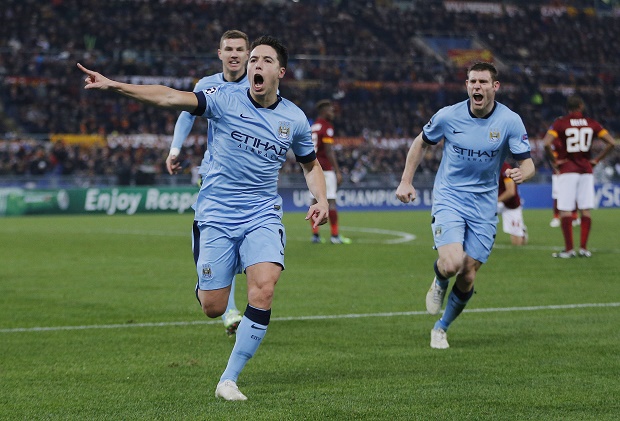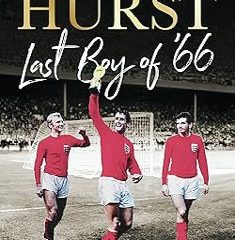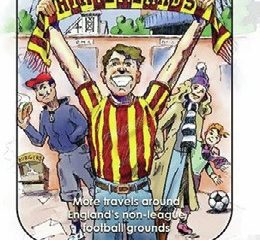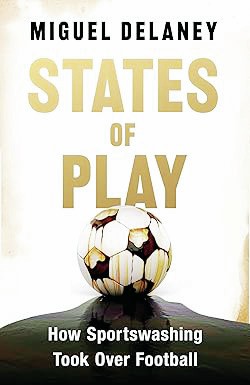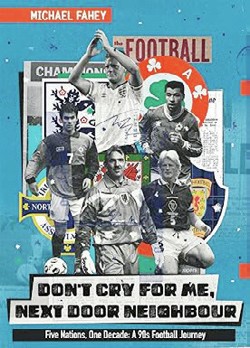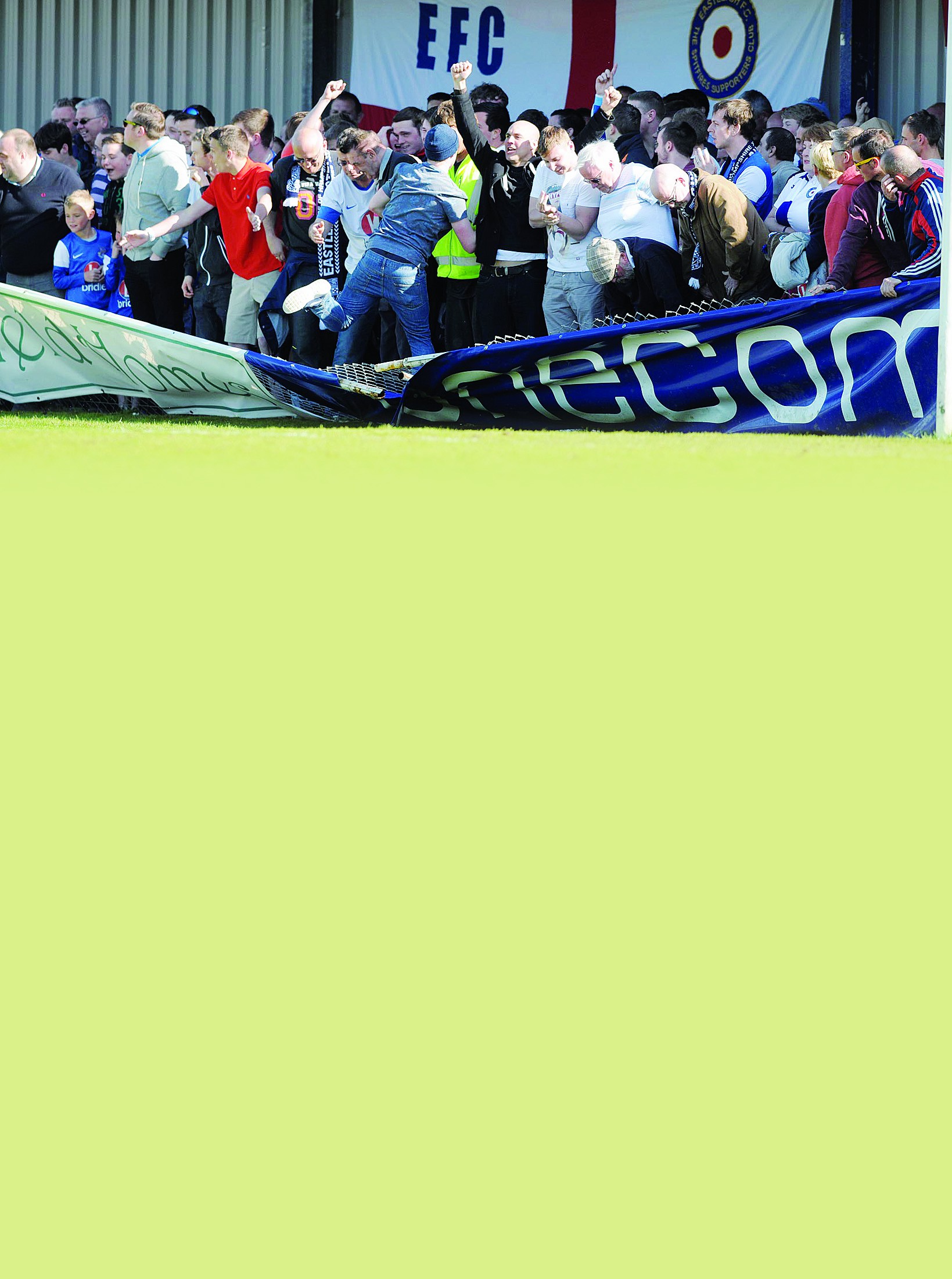
JOHN LYONS reviews The More We Win The Better It Will Be, written by Paul McNamara, who was granted ‘access all areas’ at Eastleigh last term
IT´S a great idea – spend a year on the inside of a football club, see how it works and write a book about it.
Not many of us get to do it, though. Paul McNamara is one of the lucky ones. A lapsed Everton fan disenchanted with the big money, sanitised Premier League, he looked elsewhere for his football fix.
After one or two false steps, he ended up going along to watch one of his local clubs, Eastleigh. The ambitious Non-League outfit have been racing up the football pyramid in the last decade.
By the time, McNamara began following them for book purposes at the start of the 2013-14 season, they were in Conference South.
And with decent financial backing behind them, they were seen as one of the teams to beat by envious rival supporters.
In his book The More We Win The Better It Will Be, McNamara talks us through his switch from Everton to Eastleigh and how he went about the process of persuading the club to allow him ‘access all areas’.
He tells us about his trepidation about whether he would be accepted by the players and staff. In the event, he needn’t have worried as manager Richard Hill and his squad readily made him part of the group.
Perhaps the introduction and pre-season part of the book is a bit long – it isn’t until Chapter 15, page 96, that we get to the first day of the season – but it does set the scene well for what is to come.
And what a first day – Eastleigh hosting a Sutton United side managed by former Spitfires boss Paul Doswell and with four explayers in their starting XI.
Eastleigh win 1-0 on the pitch, but the offpitch squabble involving Hill and Doswell highlights some of the pettiness that can exist at this level.
Both managers went into the game – opening day remember – serving touchline bans, though Hill went into his team’s dressing room at half-time.
McNamara writes: “A miffed Doswell, who had spent half-time kicking his heels by the food van – the Premier League alternative of reclining in a plush executive lounge not being an option – was, on Saturday night, warning that he planned to report his counterpart’s transgression to the FA.”
On Monday morning, Eastleigh sent a letter to the FA explaining that any breach of the rules was in ignorance.
The Eastleigh-Sutton rivalry is a good one – and makes for entertaining reading. In the return, despite playing against ten men for 70 minutes after ex-Spitfire Mitchell Nelson had been sent off for an ‘awful challenge’ on Stuart Fleetwood, Eastleigh could only draw 1-1.
McNamara said: “With a couple of minutes to play, and after Eastleigh’s latest aimless forward ball, ‘Dossie’ – now back in his dugout – strode out to holler across to Richard his judgement on the visitors’ style of football, or lack thereof.
“The sending-off incident had already sparked a fair old ruckus between the occupants of the two benches, as well as a good deal of each side’s playing personnel. It is legitimate to conclude that Eastleigh-Sutton relations are as cordial as those between Chelsea and Liverpool.”
Aside from the Eastleigh-Suttton shenanigans, there is plenty more to enjoy in this book. You learn about the players, how they mix together, how they train, what they do away from football whether it it is studying, coaching… or selling Herbalife products.
If I had a criticism, it would be that I would have liked to have heard even more directly from the players’ mouths about how they combine playing high-level semi-professional football with all their other responsibilities.
But, then again, this is McNamara’s account – and he tells it well. He eats, sleeps and breathes Eastleigh Football Club and makes you interested in the manager, players and officials.
In fact, you get the feeling you know them personally even though you’ve never met them. In my opinion, former Northampton star Hill comes across well. You sense he feels the pressure of taking Eastleigh up, but, beyond a seemingly gruff exterior, really cares about what he’s doing.
The players also come across as fully committed to the cause. There’s plenty of experience in there with the likes of skipper Glen Southam (now Sutton United), Ross Flitney, Chris Todd, Jamie Collins (now Sutton United) and Stuart Fleetwood (now on loan at Forest Green Rovers).
There are some decent asides away from the battle for league glory. McNamara takes time out to talk about the battle to buy a cup of tea at half-time, especially with more and more fans attending games, and how Liverpool, the team he loathes, inch closer to the Premier League title.
I’m not giving too much away by revealing, getting on for a year later, that Eastleigh eventually won Conference South. You only need to look at the Conference table now to realise that.
They are challenging for the play-offs and could be in the Football League in a few months’ time. Hill is still at the helm and many of the players remain.
Once you’ve read this book, you find yourself keeping an eye out for their results – and that surely tells you McNamara has done a good job.
● The More We Win The Better It will Be can be purchased online at http://www.troubador. co.uk/book_info.asp?bookid=2945
It’s also available to order online or in store from Waterstones and from other good bookshops

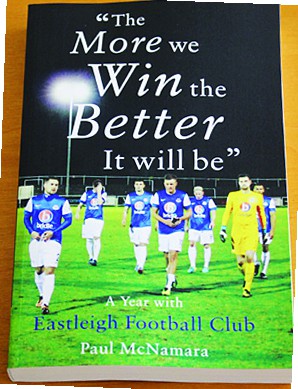

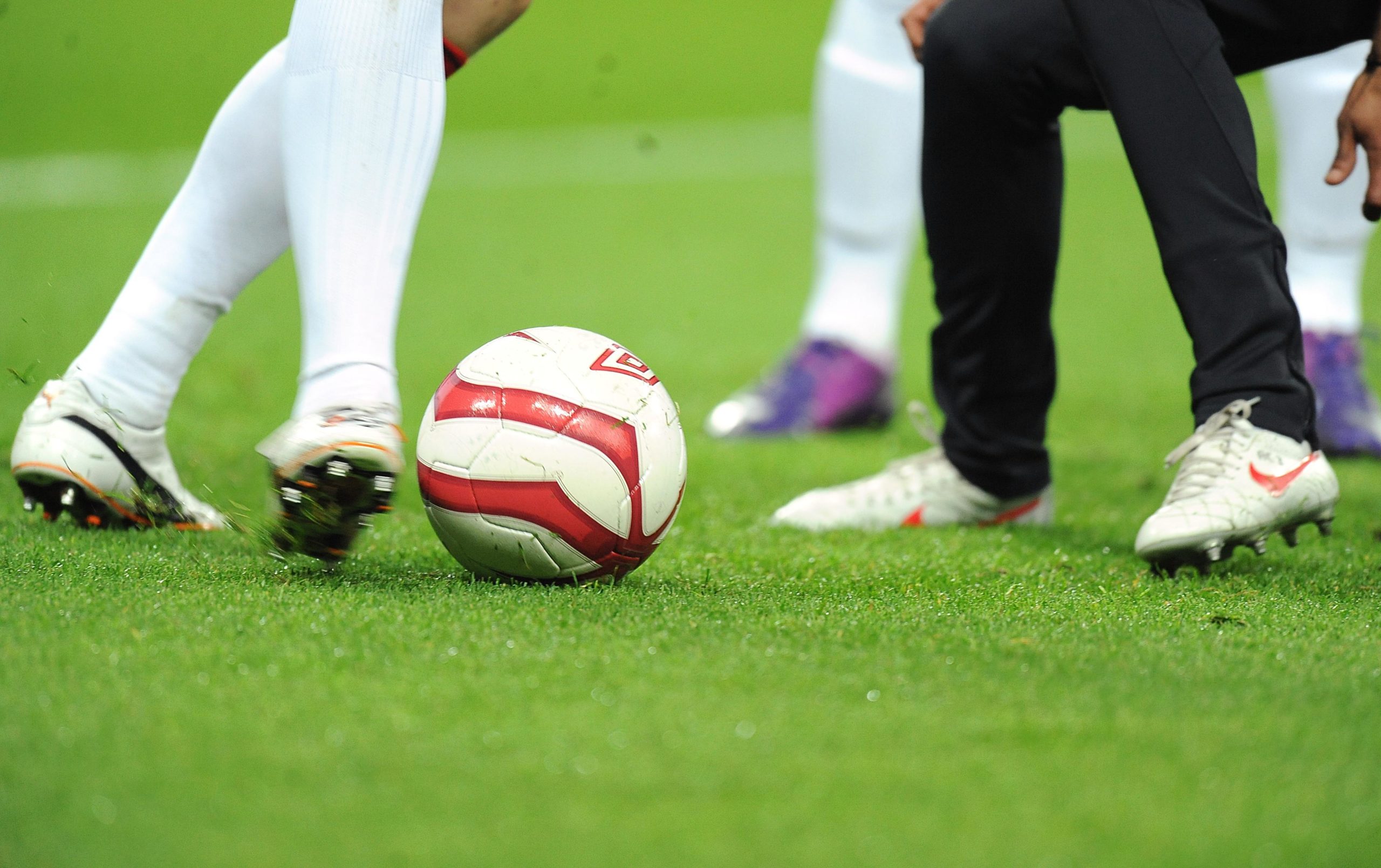
Late Tackle News
The best moments of the South African Premiership so far this season

Book Reviews
Book Review: Chris Towers finds right mix
